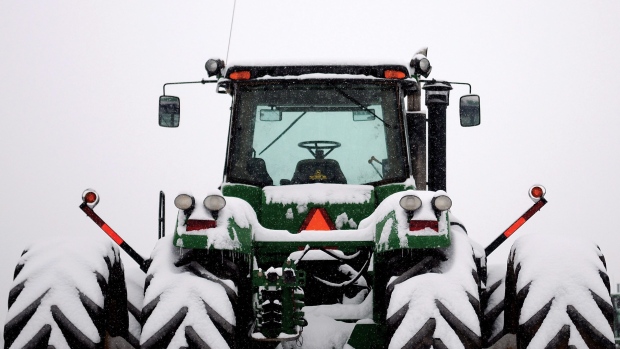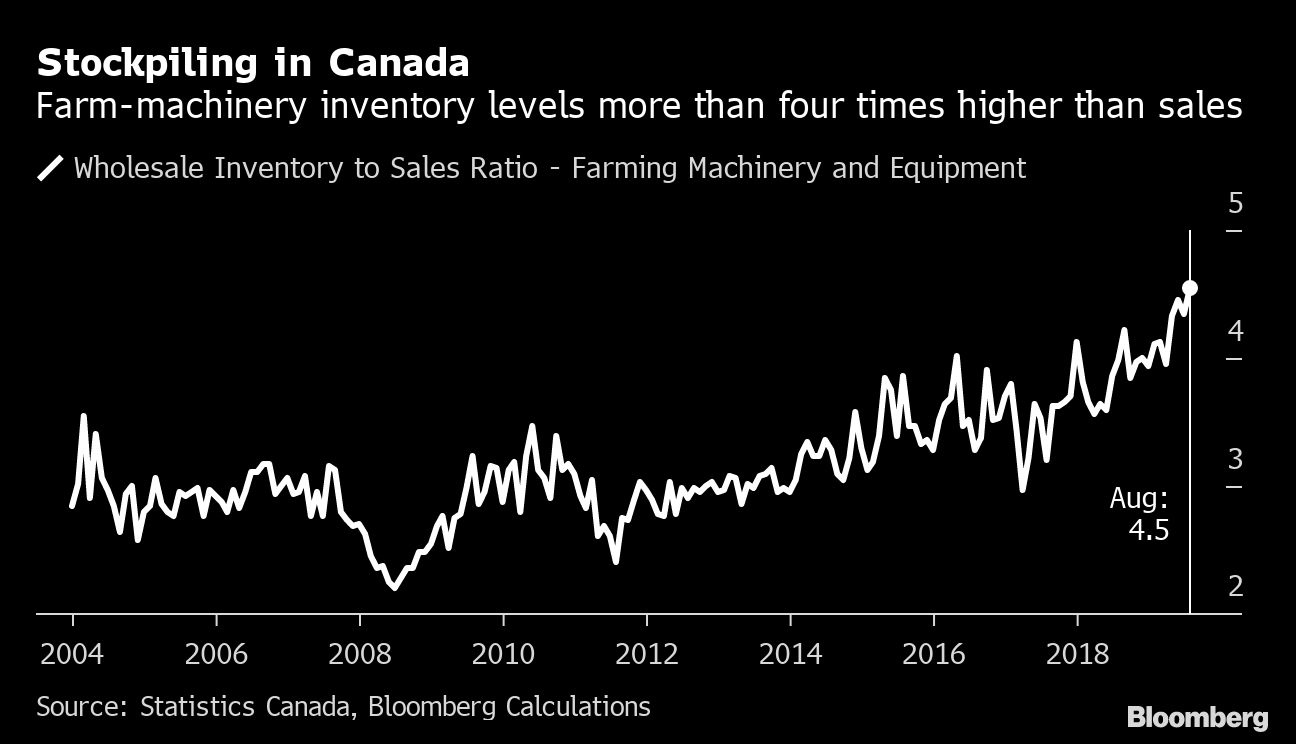Nov 8, 2019
It's too wet to buy tractors in Canada
, Bloomberg News

It’s been so wet in Canada that farmers aren’t buying tractors.
The weather has been a slog in the Great White North. Soggy fields and freezing temperatures have delayed the fall harvest in recent weeks, and many crops are still sitting in fields. Growers aren’t sure how much of a loss they’ll face if the reaping can’t get done before the winter settles in, and that’s coming at a time when depressed global grain prices are already keeping farm margins tight.
It’s no wonder Devon Walker, who grows grains and oilseeds on 2,800 acres near Lashburn, Saskatchewan, decided not to buy a new machine this year. He had been debating the purchase, even going so far as to have local dealerships price out a trade-in value on his current combine. But in the end, there was just too much stacked against farmers this year.
“There’s no optimism that I will get that crop in the bin and be able to sell that grain,” he said, adding that the window for harvesting is about to get “slammed shut” and “commodity prices have softened greatly,” raising concerns over cash flow.
Walker isn’t alone. Purchases of farming-related machinery and equipment on the wholesale market have dropped 6.6 per cent so far this year to $13.3 billion, according to Statistics Canada, the first decline in a decade. At the same time, inventories are building, with stockpiles in the category — which also includes lawn and gardening machinery — up 4.4 per cent to $56 billion. As of August, inventory represents a record 4.5 times the amount of actual sales.

Globally, crop prices have come under pressure amid gluts and trade conflicts. In Canada, farmers are also facing reduced Chinese purchases of canola amid a breakdown in relations between the countries. A weak Canadian dollar has driven up prices of imported machinery, and there are also concerns over rising interest rates.
The weak farm-machinery sales “reflect some of the challenges we’re seeing in agriculture,” said Craig Klemmer, principal agricultural economist with Farm Credit Canada. Outside factors “are making it more challenging for farmers, and that just makes some uncertainty about what farm revenues are going to look like.”
That could be bad news for the likes of Deere & Co., the world’s largest tractor manufacturer. On an earnings call in August, Luke Chandler, the company’s chief economist, forecast flat ag-industry sales in Canada for 2019, reflecting “uncertainty in the market.” The machinery maker also said weakness in the country contributed to higher inventories in the fiscal third quarter. Deere reports its fourth-quarter results later this month.
Ironically, the tight farm margins make upgrading to improved equipment more attractive, which could eventually help purchases to rebound. Newer machines with updated technology can lower production costs and help growers stay competitive, Curt Blades, senior vice-president of agriculture and forestry with the Association of Equipment Manufacturers, said in a phone interview.
Saskatchewan farmer Walker said he’s considering upgrading his combine next year. He plans to watch auction sales for deals, and will “wait and see what the markets do,” he said.
“We need to see some positives in the commodity market,” Walker said. “We need to see some trade agreements go positive.”





